Water Capitalism
Capitalist Thought: Studies in Philosophy,
Politics, and Economics Series Editor: Edward W. Younkins, Wheeling Jesuit University
Mission Statement
This book series is devoted to studying the foundations of capitalism from a number of academic disciplines including, but not limited to, philosophy, political science, economics, law, literature, and history. Recognizing the expansion of the boundaries of economics, this series particularly welcomes proposals for monographs and edited collections that focus on topics from transdisciplinary, interdisciplinary, and multidisciplinary perspectives. Lexington Books will consider a wide range of conceptual, empirical, and methodological submissions, Works in this series will tend to synthesize and integrate knowledge and to build bridges within and between disciplines. They will be of vital concern to academicians, business people, and others in the debate about the proper role of capitalism, business, and business people in economic society.
Advisory Board
Doug Bandow,Tibor R. Machan, Walter Block, Michael Novak, Douglas J. Den Uyl, James Otteson, Richard M. Ebeling, Douglas B. Rasmussen, Mimi Gladstein, Chris Matthew Sciabarra, Samuel Gregg, Aeon J. Skoble, Stephen Hicks, C. Bradley Thompson, Steven Horwitz, Thomas E. Woods, Stephan Kinsella
Titles in the Series
Economic Morality: Ancient to Modern Readings, by Henry C. Clark and Eric Allison The Ontology and Function of Money: The Philosophical Fundamentals of Monetary Institutions, by Leonidas Zelmanovitz Andrew Carnegie: An Economic Biography, by Samuel Bostaph Water Capitalism: The Case of Privatizing Oceans, Rivers, Lakes, and Aquifers, by Walter E. Block and Peter Lothian Nelson
Water Capitalism
The Case of Privatizing Oceans, Rivers, Lakes, and Aquifers
Walter E. Block and Peter Lothian Nelson
LEXINGTON BOOKS
Lanham Boulder New York London
Published by Lexington Books
An imprint of The Rowman & Littlefield Publishing Group, Inc.
4501 Forbes Boulevard, Suite 200, Lanham, Maryland 20706
www.rowman.com
Unit A, Whitacre Mews, 26-34 Stannary Street, London SE11 4AB
Copyright 2015 by Lexington Books
All rights reserved. No part of this book may be reproduced in any form or by any electronic or mechanical means, including information storage and retrieval systems, without written permission from the publisher, except by a reviewer who may quote passages in a review.
British Library Cataloguing in Publication Information Available
Library of Congress Cataloging-in-Publication Data
Block, Walter, 1941- author.
Water capitalism : the case for privatizing oceans, rivers, lakes, and aquifers / Walter E. Block and Peter L. Nelson.
pages cm. -- (Capitalist thought: studies in philosophy, politics, and economics)
Includes bibliographical references and index.
ISBN 978-1-4985-1880-2 (cloth : alk. paper) -- ISBN 978-1-4985-1881-9 (electronic)
1. Water-supply. 2. Water rights. 3. Privatization. I. Nelson, Peter L. (Peter Lothian), 1946- author. II. Title. III. Series: Capitalist thought: studies in philosophy, politics, and economics.
HD1691.B575 2015
333.91--dc23
2015032605
 TM The paper used in this publication meets the minimum requirements of American National Standard for Information Sciences Permanence of Paper for Printed Library Materials, ANSI/NISO Z39.48-1992.
TM The paper used in this publication meets the minimum requirements of American National Standard for Information Sciences Permanence of Paper for Printed Library Materials, ANSI/NISO Z39.48-1992.
Printed in the United States of America
Prior to the writing of histories, from before the dawn of civilization, the Homers of earth braved the elements to reach new vistas. This book is dedicated to those maniacal mariners who have revolutionized society in ways that the petrified toe-dippers of the world never believed possible. May ensuing adventurers continue that quest for excellence!
Maps

Mississippi River Watershed

Central California Watersheds. Note: The Tule/Kern Watershed (including Fresno and Bakersfield) does not drain to the ocean.

Gulf of Aden and Environs

South Florida
Acknowledgements
We authors wish to thank our intellectual predecessors. Together we are particularly beholden to those who established the Austrian School of Economics: Carl Menger, Eugen Bhm von Bawerk, Ludwig von Mises, and especially Murray Rothbard. It was the latter who through his adherence to the non-aggression principle, to private property rights, to libertarian principle, shines as a beacon for all those who wish to bring about the just society. Without these pillars of wisdom, this book would not have been possible.
We wish to thank Llewellyn Rockwell. It was his web site that provided the connection wherein the two of us, strangers no more, were able to embark together on this journey. We wish to thank the following students at Loyola University in New Orleans who provided great help with editing: Megan McAndrews, Christian Light, Ricardo Fast, Gage Counts, and Anton Chamberlin.
Blocks Acknowledgments
I thank Nathaniel Branden and Ayn Rand who first introduced me to libertarianism, and Murray N. Rothbard who completed my political philosophical education to full anarcho-capitalism and also to Austrian economics. I also thank my wife Marybeth for being there.
Nelsons Acknowledgments
Important, though not of the sort that is usually recognized in an acknowledgment section of a book, is my 6th grade teacher (name withheld) who through his interminable lies, taught me to avoid paying homage to authority. For it is through him that my journey to the freedom principle started.
I especially wish to acknowledge J. Craig Green, P.E. as the water rights engineer and most importantly as the philosopher of freedom who mentored me in libertarian thought. Prior to meeting him, I had never met or read another Libertarian, though I had evolved into one. He aided me to overcome a few hurdles in my intellectual odyssey.
In addition to those scholars listed above, I owe a deep debt of gratitude to such writers as Lysander Spooner, Herbert Spencer, and more recently, Adam Fergusson, as well as many others.
Finally and not least, my wife Jeanne has provided me the support and the space to pursue this endeavor.
Chapter 1
Privatize the Oceans and All Other Bodies of Water
My life is like a stroll upon the beach, As near the oceans edge as I can go. Henry David Thoreau, The Fishers Boy, (1900)
This book is dedicated to the study of water privatization. No. That is not quite right. We, the authors of this book, will indeed analyze the arguments in favor of allowing private individuals to own bodies of water; but more: we shall also advocate this public policy, and attempt to refute objections to such a state of affairs.
Whoa. We have not, so far, said much of anything. Indeed, only one paragraph of this book, the previous one, has so far appeared for the readers edification/consideration. And yet, we fear, we are already in grave danger of shocking our entire audience. When people wrap their minds about this concept (private property for oceans, lakes, rivers, and aquifers) and realize we think they should function in much the same way as ownership of pizza, shoes, and cows, we realize many will likely call for the committal to a mental institution of the authors, that is, us.








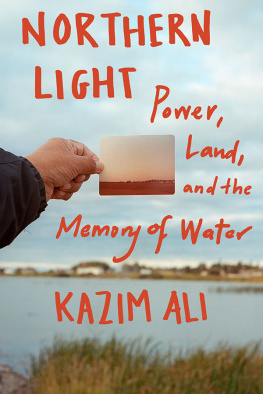

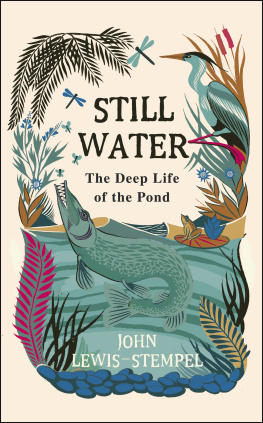
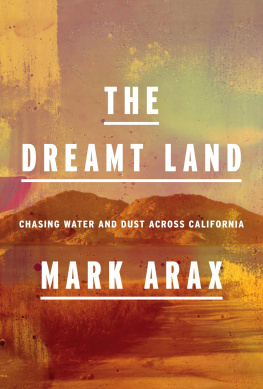


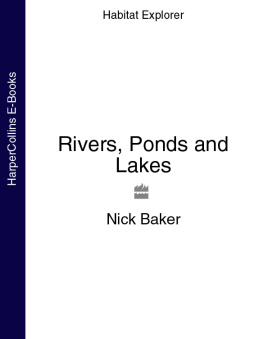
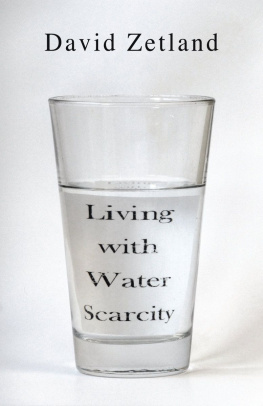
 TM The paper used in this publication meets the minimum requirements of American National Standard for Information Sciences Permanence of Paper for Printed Library Materials, ANSI/NISO Z39.48-1992.
TM The paper used in this publication meets the minimum requirements of American National Standard for Information Sciences Permanence of Paper for Printed Library Materials, ANSI/NISO Z39.48-1992.


